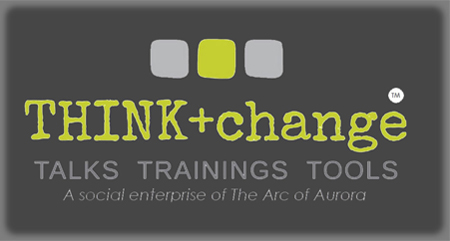 Unless rights are modified by court order, a person with a disability has the same legal rights and responsibilities guaranteed to all other people under federal and state laws. However, Colorado systems allow for procedures that remove or suspend the rights of people with intellectual and developmental disabilities (IDD) with the intent to teach or maintain their safety. This 3-part podcast/vodcast series reviews policies, practices, and procedures that might undermine a person’s ability to access their community rights, and how we can ensure the protection of people with IDD without unnecessarily eliminating their choice and dignity of risk.
Unless rights are modified by court order, a person with a disability has the same legal rights and responsibilities guaranteed to all other people under federal and state laws. However, Colorado systems allow for procedures that remove or suspend the rights of people with intellectual and developmental disabilities (IDD) with the intent to teach or maintain their safety. This 3-part podcast/vodcast series reviews policies, practices, and procedures that might undermine a person’s ability to access their community rights, and how we can ensure the protection of people with IDD without unnecessarily eliminating their choice and dignity of risk.Why you should tune in
We’re all born with universal rights, and professionals and families need to acknowledge that people with IDD have the same opportunities as anyone else to succeed or fail. It’s similarly important to understand how the Final Settings Rule will propel HCBS into the future so those with IDDs are afforded opportunities to choose, make decisions, and take control over their lives via active engagement and inclusion.
Watch the videos below for the vodcast series or scroll down to the bottom of the page to listen to the podcast series. Podcasts are also available Spreaker, Itunes, iHeartRadio, or Spotify
Human Rights, the Final Settings Rule, and Adults with Intellectual and Developmental Disabilities (IDD) was made possible through support from Arc Thrift Stores, Colorado District Attorney’s Council, Developmental Pathways, and The Arc of Aurora.
Watch the Vodcast
Episode 1: Human Rights and Home and Community-Based Services (HCBS) Waivers
- Describes what human, civil, and political rights are; defines what it means to have rights removed, restricted, or suspended when enrolled on the Colorado HCBS Developmental Disability Waiver; reviews processes to protect individuals with an IDD; explains the Human Rights Committee (HRC) makeup within Community Centered Boards (CCB); clarifies what Informed Consent is; shares whom to complain/report to if a person’s rights are unnecessarily restricted/suspended.*Please note that that the term ‘Community Centered Boards (CCBs)’ mentioned in this product has been replaced with ‘Case Management Agencies (CMAs)’ as of 2024. For further details, refer to this handout for a brief explanation, or explore the changes in more depth here.
Episode 2: Final Settings and the Rights of People with IDD
- Defines what the Final Settings Rule is; and how it applies and why it matters for people with IDD to have real and meaningful choices in their day-to-day lives and; how people can manage safety while also allowing natural hazards via The Dignity of Risk.
Episode 3: A Clinical Psychologist and Board Certified Behavior Analyst (BCBA-D) perspective with special guest, Paul Spragg
Dr. Paul Spragg specializes in clinical, school, and forensic psychology and applied behavior analysis for children and adults with neurodevelopmental disorders to include Intellectual Disabilities, ADHD, and Autism Spectrum Disorders. This interview reviews: the history of HRC, and what its intent was; how the rights of people with IDD will change once the Final Settings Rule is fully implemented; and how the disability community and its professionals can balance liability, safety, and supervision.
Listen to the podcast
Listen to “TRAININGS: E50: Human Rights and Home and Community-Based Services (HCBS) Waivers” on Spreaker.
Listen to “TRAININGS: E51: Final Settings and the Rights of People with IDD” on Spreaker.
Listen to “TRAININGS: E52: A Clinical Psychologist and Board Certified Behavior Analyst (BCBA-D) perspective” on Spreaker.
